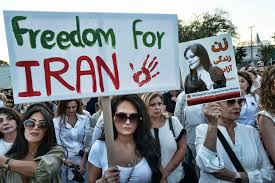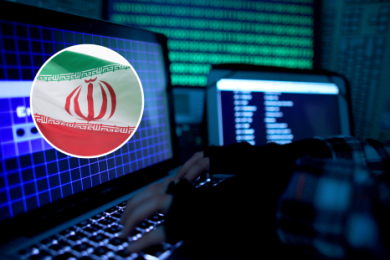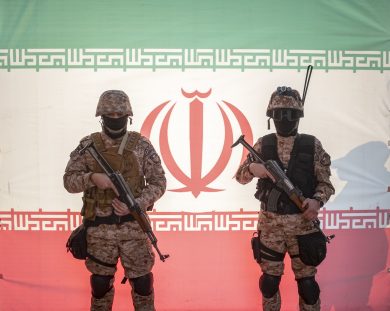The Islamic Revolutionary Guard Corps (IRGC) is one of the world’s most powerful engines of repression, terror, and international instability. From crushing protests in Iran to sponsoring militias in Syria, Yemen, and Lebanon, its influence fuels violence and human suffering across continents. But ordinary people are not powerless. Activism—coordinated, strategic, and sustained—can challenge even the most entrenched systems of terror.
This Activism Toolkit outlines five powerful and practical ways you can join the global movement to expose, isolate, and counter the IRGC’s influence. Whether you’re an experienced advocate or someone just beginning to get involved, this guide is your resource for action, empowerment, and impact.
1. Advocate for Terrorist Designation
Why It Matters
The legal designation of the IRGC as a terrorist organization is a key step in cutting off its access to global finance, diplomacy, and legitimacy. Countries like the U.S. have already taken this step, but many—including Canada, the UK, and the EU—have yet to act fully.
How You Can Help
A. Contact Your Elected Officials
• Call, email, or meet with members of parliament, congress, or local councils.
• Use evidence-based arguments: mention the IRGC’s support for Hezbollah, Quds Force operations, and human rights abuses.
• Share stories of victims or personal testimonies if applicable.
B. Launch a Petition
• Start or sign a petition urging your government to designate the IRGC.
• Use platforms like Change.org or Avaaz.
• Share with your network regularly to gain traction.
C. Push for Parliamentary Resolutions
• Work with NGOs or advocacy groups to draft and promote non-binding resolutions.
• Even symbolic resolutions raise awareness and pressure governments to act.
D. Attend or Organize Rallies
• Join peaceful protests demanding action against the IRGC.
• Focus on embassies, consulates, or parliaments.
• Bring signs, flags, and photos of victims to draw media attention.
Tools You Can Use
• Sample letters to officials
• Lists of MPs or Representatives to contact
• Social media scripts for mass call-ins or email campaigns
2. Raise Public Awareness
Why It Matters
Many people—especially outside of Iran or the Middle East—have limited knowledge of what the IRGC is or what it does. Education is the first step to mobilization.
How You Can Help
A. Create and Share Educational Content
• Post infographics, articles, or videos explaining the IRGC’s structure and crimes.
• Share survivor testimonies, stats, and timelines of IRGC-linked terror.
B. Host Events or Panels
• Organize local events at universities, libraries, or community centers.
• Feature guest speakers: activists, scholars, former political prisoners.
• Livestream and post the recordings online.
C. Start a Blog or Podcast
• Share stories about victims of IRGC violence.
• Interview experts or survivors.
• Debunk misinformation and highlight legal pathways for justice.
D. Use Your Platform
• Whether you have 100 or 100,000 followers, your voice counts.
• Use hashtags like #IRGCAct, #BanIRGC, #WomanLifeFreedom, and #JusticeForIran.
• Tag journalists, influencers, and politicians.
Tools You Can Use
• Campaign hashtags
• Slide decks and fact sheets
• Survivor quotes and verified images
• Suggested video scripts and podcast formats
3. Support Victims and Exiled Activists
Why It Matters
Thousands of people have been directly harmed by the IRGC—tortured, imprisoned, exiled, or had family members killed. Many live in exile, without resources or support.
How You Can Help
A. Donate to Verified Organizations
Support NGOs that provide legal aid, housing, trauma support, or asylum services to exiled Iranians and victims of the IRGC.
B. Offer Services
Are you a lawyer, therapist, designer, or translator? Offer your skills to advocacy groups or survivors who need them.
C. Write to Prisoners of Conscience
Join letter-writing campaigns for jailed activists such as:
• Narges Mohammadi
• Sepideh Gholian
• Nasrin Sotoudeh
Even knowing someone cares can make a world of difference.
D. Sponsor an Activist
Help raise funds for a student, journalist, or dissident who needs legal or relocation support.
Tools You Can Use
• List of vetted organizations
• Digital care package templates
• Letter-writing kits
• Secure donation platforms
4. Disrupt IRGC’s Global Networks
Why It Matters
The IRGC relies on a global web of front companies, banks, and proxies to fund its operations. Many of these are hidden in plain sight, doing business in Western countries or using loopholes in international law.
How You Can Help
A. Research and Report
• Track and expose companies doing business with IRGC affiliates.
• Use open-source intelligence (OSINT) tools to investigate suspicious links.
• Share findings with watchdog groups or journalists.
B. Boycott and Divest
• Avoid brands or firms with ties to IRGC-linked suppliers.
• Urge your university or employer to divest from any IRGC-linked funds or contracts.
• Launch local boycott campaigns against businesses engaging with regime-friendly companies.
C. Pressure Financial Institutions
• Contact your bank or investment firm and ask if they screen for IRGC-linked assets.
• Urge adoption of stronger compliance and transparency standards.
Tools You Can Use
• Lists of sanctioned IRGC entities
• OSINT research guides
• Sample boycott letters and divestment motions
5. Build Coalitions and Mobilize Your Community
Why It Matters
Movements gain strength when they are inclusive and united. The IRGC’s crimes affect women, workers, minorities, journalists, and civilians across religions and regions. Build cross-movement solidarity to amplify your cause.
How You Can Help
A. Form or Join a Local Chapter
• Start a campus or city-based IRGC Act Coalition chapter.
• Organize meetups, plan campaigns, and distribute resources.
B. Partner with Other Movements
• Collaborate with:
• Women’s rights groups
• Anti-terrorism watchdogs
• Refugee and migrant rights networks
• LGBTQ+ and minority protection organizations
C. Host Solidarity Events
• Hold vigils, art exhibitions, poetry readings, or panel discussions with activists from affected communities.
• Use these moments to raise funds and educate attendees.
D. Recruit New Allies
• Encourage friends, colleagues, students, or neighbors to get involved.
• Start small: share a post, attend an event, sign a petition.
Tools You Can Use
• Coalition-building checklists
• Volunteer sign-up forms
• Solidarity campaign templates
• Event organizing guides
Bonus: Use Strategic Pressure Points
Targeted Audiences:
• Lawmakers – Policy change and designation authority
• Media – Narrative framing and public attention
• Academia – Research, thought leadership, and student activism
• Faith communities – Moral solidarity and grassroots reach
• Diaspora – Emotional, financial, and mobilization power
Each audience plays a unique role. Tailor your message, tone, and strategy for maximum effect.
Staying Safe as an Activist
The IRGC has a history of threatening and targeting dissidents—even abroad. Keep yourself and your group protected.
Tips:
• Use secure apps (Signal, ProtonMail)
• Avoid sharing personal details online
• Protect your devices with strong passwords and 2FA
• Vet new contacts before trusting them with sensitive info
• Work in teams and never isolate yourself
Conclusion: Your Voice Is Your Weapon
The IRGC wants you to feel powerless. It thrives on fear, silence, and complicity. But history shows that collective action—when strategic, persistent, and courageous—can bring down empires.
Join Our Newsletter!
Stay informed with the latest updates, news, and ways to take action in the fight for justice and global security. Sign up now to get updates delivered straight to your inbox!





